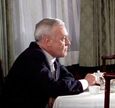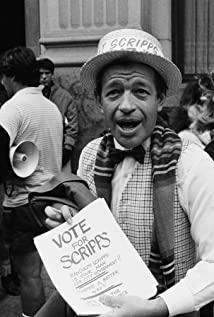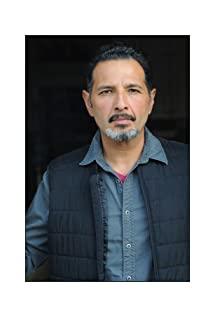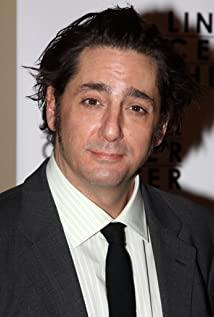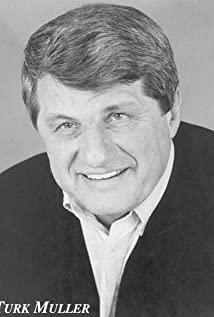This is my first time writing a movie review, so please forgive me for the bad writing. I will not talk about the plot. The previous film reviews have already said it comprehensively, so I will briefly talk about a few questions here.
1. The first thing that must be said is that this is Norton's debut. I really didn't expect that the debut was so exciting. I used to like his "Fight Club", "Hulk" said it was average, and other works basically did not Seen. Not good. Finally, I want to say that Norton's performance in this drama is really good, especially the scene between Roy and Martin. It's so exciting, and the part where he complained about Allen was quite funny.
2. Why is the film called "First Degree Fear"? My understanding is: At the end, Martin's belief in his insistence on justice collapsed, and he couldn't distinguish what justice was. The first time he saw Allen, he thought that he was not a murderer, and took this as a firm belief to support him in defending Allen. No matter how much difficulties he encountered, he believed that Allen was innocent. But in the end, after Allen was exempted from the death penalty, he found that Allen's dual personality was fake, which made Martin's belief collapse. He was very confused and didn't know what was true and what was false, where is the real justice, kill Dead pervert Bishop Ellen is justice? Or was Allen's death sentence justified? Or is it justice to save Allen from the death penalty?
3. There are a lot of flips in the film, which is also the wonderful part of the film. First, the Cardinal and the Attorney General were very decent at first, and the lawyer Martin was a pecuniary; later, the Cardinal was a perverted personality, the Attorney General was a scum who colluded with officials and businessmen, and Martin was a man who believed that not all crimes were bad people. lawyer. Allen started out as a murderer, was later judged to be a dual personality, exempted from the death penalty, and finally turned it over to be directed by himself, and there is no dual personality at all. In the second half of the movie, when Martin was drinking with a reporter, he said that he had done illegal things before, so he knew what was right and what was true justice (I understand the meaning is probably the same), and in the end he walked in the court in a confused way , do not know what is right and what is true justice.
4. The second-place review, "I think the ending is very different from what most people understand - that's why I admire this movie so much", suggested that Allen and Lowy were truly schizophrenic, and Lowy won in the end , occupying Allen's body in an all-round way. If the film is really expressed like this, I think this film will be more exciting, but in terms of what this film wants to express, it should be a schizophrenic made up by Allen himself. A few of them can be seen:
1. When Martin and Allen met for the first time, Allen said he was going to deliver the book, and then heard the quarrel, stepped forward to check that the bishop had fallen in a pool of blood, and saw a shadow approaching the bishop, the third person saw He just walked over, then he fainted, and when he woke up, he was already covered in blood. When the police arrived at this time, he was afraid and ran away. So the question is, if Allen is schizophrenic, and Roy has amnesia when he controls his body, how did Allen see the third person and see the bishop in a pool of blood in advance, if it is normal schizophrenia The order should be: come to return the book, then fainted, woke up covered in blood, found the bishop in a pool of blood, the police arrived, and ran away in fear.
2. The film critic said that if he wasn't schizophrenic, with such a careful mind, why didn't he plan to kill the bishop and escape successfully? Because after being caught, he was definitely a death sentence. If he hadn't happened to meet Martin, the grass on the tomb would have been one meter high. Actually, I think it was an accidental murder. The movie shows that the bishop has just woken up. Can this be understood as something nasty the bishop did the night before, which stimulated Allen. Allen killed the bishop in the morning when he was hot, thinking that he would not be killed soon. It was found that there was enough time to deal with the scene and run away. As a result, I happened to be bumped by a courier boy. The police came quickly, so I didn't run away. And schizophrenia is an idea that came up after encountering Martin or after being arrested. I intend to use this to get rid of the crime. Anyway, not pretending is a death sentence. If you pretend, you may escape the punishment of the law. With great performances to come. In fact, he does not need to be recorded by a video recorder as a schizophrenic performance (because the prosecution can completely say that this is a play written and directed by the defense), as long as the defense lawyer believes it, and it will be OK to perform it again in the final trial . One of the interesting things is that Martin is entangled in not being able to take the initiative to propose that Allen is schizophrenic (doesn't understand the legal knowledge here), I guess Allen should not know this, thinking that as long as he shows schizophrenia, he may get off the crime.
3. Finally Martin asked: "Never Loy?", Allen replied: "Never Allen". The film review here is to say that Roy occupies Allen's entire body, and Roy's personality annexes Allen's personality. In fact, I think what he meant to say was: I have always been a brutal Loy, and a weak Alan has never existed. It's just that I played a weak Alan for you to see. The heart has always been cruel, and the weak appearance is shown to the bishop, surrounding people, Martin, judges and other surrounding people. The last part is really neurotic, and I think that's the real Allen. In fact, this is also considered a schizophrenia. In front of outsiders, he looks weak. In fact, he is a very cruel person, but this transformation is controlled by himself, not by personality.
5. I really liked the previous film review "Court and the Truth", which explained the legal knowledge of the "please-bargaining system" and answered a question that has been bothering me for a long time. I have seen American movies recently. Many of them are bargains between lawyers, prosecutors and judges, like a business. Generally, as long as you plead guilty, the punishment is very light, and it is easy to negotiate, and there is even a long time to come. If you plead guilty, you feel that you can not serve the sentence. After reading it, you realize that there is a "please-bargaining system" in it. You can't say it is good or bad. Is it reasonable to exist? I recently watched "Law Abiding Citizen", which is the tragedy of the "please-bargaining system".
6. Finally, a movie "Side Effects" that is somewhat similar to this one is played by the handsome guy Qiu, the heroine is Rooney (like her "Dragon Tattoo Girl"), and the female support is Catherine Zeta Jones. The cast is good, The storyline is similar to this one, and it is slightly inferior to this one in general, but it's still pretty good. I like the ending. The heroine did not escape justice (not legal sanctions), you can watch it if you are interested.
I wrote so much, and there is a lot of nonsense. If there is a guest official who has read it, I would like to express my thanks here, please feel free to spray it.
View more about Primal Fear reviews





